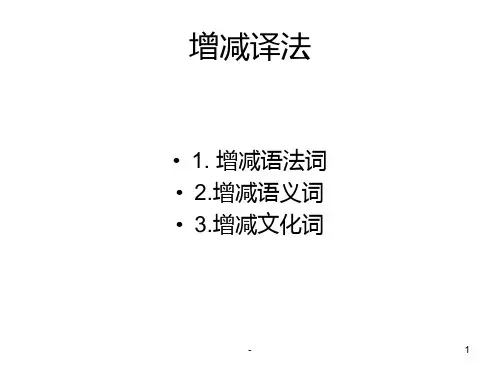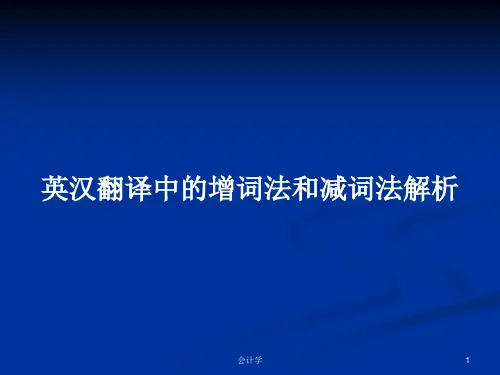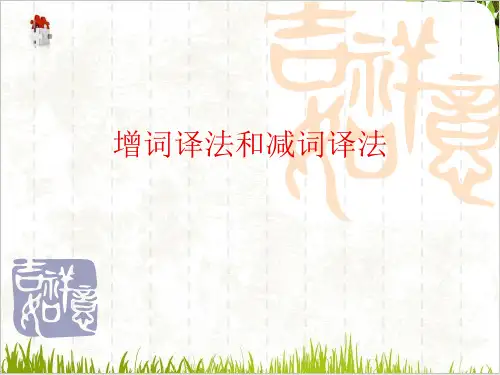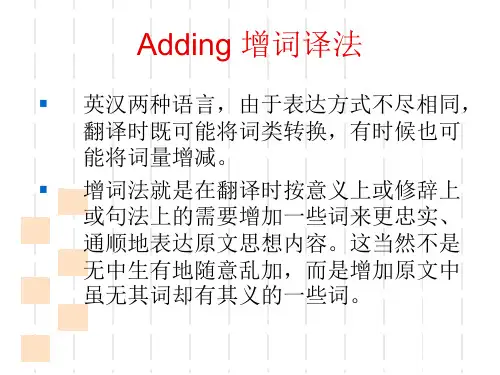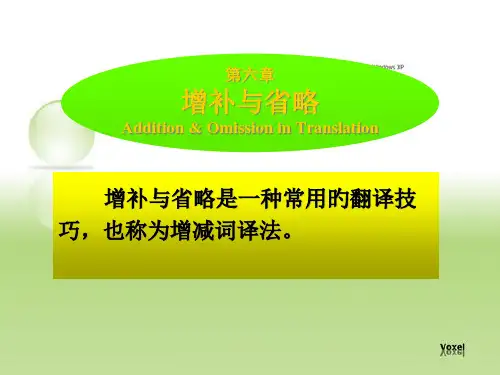汉译英增词和减词ppt课件
- 格式:ppt
- 大小:673.00 KB
- 文档页数:25
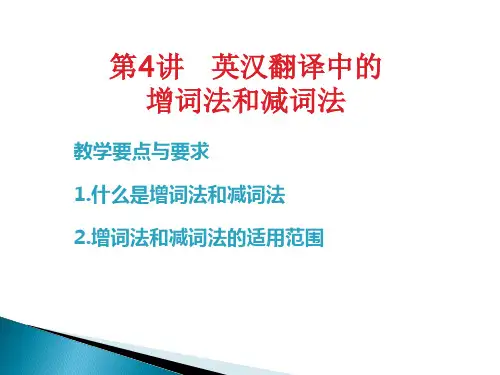
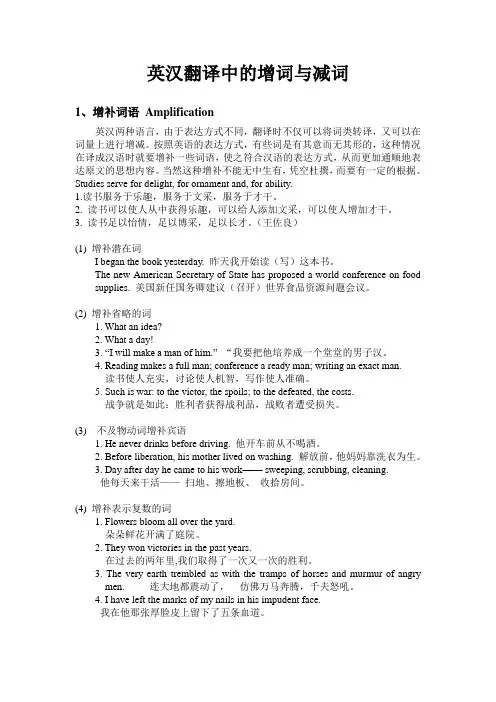
英汉翻译中的增词与减词1、增补词语Amplification英汉两种语言,由于表达方式不同,翻译时不仅可以将词类转译,又可以在词量上进行增减。
按照英语的表达方式,有些词是有其意而无其形的,这种情况在译成汉语时就要增补一些词语,使之符合汉语的表达方式,从而更加通顺地表达原文的思想内容。
当然这种增补不能无中生有,凭空杜撰,而要有一定的根据。
Studies serve for delight, for ornament and, for ability.1.读书服务于乐趣,服务于文采,服务于才干。
2. 读书可以使人从中获得乐趣,可以给人添加文采,可以使人增加才干。
3. 读书足以怡情,足以博采,足以长才。
(王佐良)(1) 增补潜在词I began the book yesterday. 昨天我开始读(写)这本书。
The new American Secretary of State has proposed a world conference on food supplies. 美国新任国务卿建议(召开)世界食品资源问题会议。
(2) 增补省略的词1. What an idea?2. What a day!3. “I will make a man of him.”“我要把他培养成一个堂堂的男子汉。
4. Reading makes a full man; conference a ready man; writing an exact man.读书使人充实,讨论使人机智,写作使人准确。
5. Such is war: to the victor, the spoils; to the defeated, the costs.战争就是如此:胜利者获得战利品,战败者遭受损失。
(3) 不及物动词增补宾语1. He never drinks before driving. 他开车前从不喝酒。
2. Before liberation, his mother lived on washing. 解放前,他妈妈靠洗衣为生。
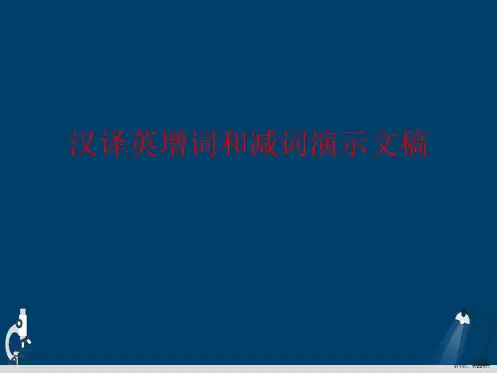

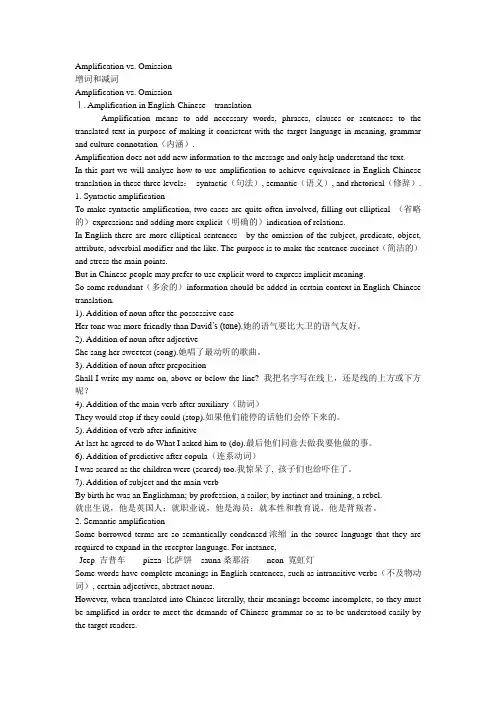
Amplification vs. Omission增词和减词Amplification vs. OmissionⅠ. Amplification in English-Chinese translationAmplification means to add necessary words, phrases, clauses or sentences to the translated text in purpose of making it consistent with the target language in meaning, grammar and culture connotation(内涵).Amplification does not add new information to the message and only help understand the text.In this part we will analyze how to use amplification to achieve equivalence in English-Chinese translation in these three levels:syntactic(句法), semantic(语义), and rhetorical(修辞).1. Syntactic amplificationTo make syntactic amplification, two cases are quite often involved, filling out elliptical (省略的)expressions and adding more explicit(明确的)indication of relations.In English there are more elliptical sentences by the omission of the subject, predicate, object, attribute, adverbial modifier and the like. The purpose is to make the sentence succinct(简洁的)and stress the main points.But in Chinese people may prefer to use explicit word to express implicit meaning.So some redundant(多余的)information should be added in certain context in English-Chinese translation.1). Addition of noun after the possessive caseHer tone was more friendly than Davi d’s (tone).她的语气要比大卫的语气友好。
